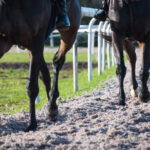In order for you to become a successful gambler, you need to know when to bet big when you’re gambling. The strategies for betting big vary from game to game, and I get to dig into why that is here.
In today’s post, I’m going to cover when you should bet big in poker.
The answer is as different from when you should bet big in blackjack as it is from when you should bet big in craps.
Poker Isn’t a Casino Game
When you’re writing about casino games like blackjack, craps, or slot machines, the ideas behind the games are different than they are from poker. That’s because casino games are banked by the house rather than the other players. It’s also because poker games allow you to vary the sizes of your bets multiple times throughout a hand.
With a casino game like blackjack, you make a bet and play your hand. You MIGHT get an opportunity to bet again if you double down or split your hand, but those are special circumstances.
In craps, you place your initial bet, and you get an opportunity to take or lay odds after that. You’re still limited to just a couple of bets.
With a slot machine, you just put in your money and hope for the best. You can switch machines to play for different stakes, but that’s about it.
In none of those cases can you change the stakes in multiple rounds like you can in poker.
Also, with casino games, the odds don’t change much situationally, certainly not in a way where you can adjust the size of your bets during a hand. Blackjack comes close, but you still have to change the size of your bets in between hands, not during them.
In real money online poker, though, the situations are always changing. Good poker players have a brake pedal and a gas pedal, and they know which to use when.
How Betting Works in Poker
The betting structure varies based on which version of poker you’re playing, but they all have the same actions in common. When it’s your turn to act, you can make one of the following bets (or “not-bets,” as the case may be):
- Bet
- Check
- Call
- Fold
- Raise
You can bet if no one has bet before you on that round. When you do, anyone who acts after you must at least match your bet to stay in contention for the pot. Betting is, by its nature, an aggressive act in poker. The size of your bets is determined by the rules of the game you’re playing in.
You can also check if no one has bet before you on that round. When you check, you don’t put any money in the pot, and everyone who acts behind you has the option to also check. You stay in the hand, but if someone behind you bets, you have to decide whether to put money into the pot in response to that. Checking is a passive move.
If someone has bet before you, you can call their bet. This means that you put the amount of money they bet into the pot and stay in the hand. Calling is also a passive move. If someone has bet before you acted, you can also fold. You don’t have to put any money into the pot, but you also forfeit any claim to it. You’re out of the game until the next hand.
Finally, if someone has bet in front of you, you can raise the size of the bet. The rules for the amounts you’re allowed to raise are based on the rules for that table. Raising is also an aggressive move, just like betting is.
Bet Big in Poker When You Think You Have the Best Hand
Generally, aggressive poker is better than passive poker. If you’re planning to compete for a pot, it’s usually better to be betting and raising than it is to be checking and calling. If you’re going to fold, it’s moot.
When you bet and raise, you accomplish two things:
- You force your opponent to make hard decisions. He either has to call, re-raise, or fold. If he’s not confident in his cards, it’s a tough decision. If your opponents all fold, you win the pot by default. It’s impossible to win a pot uncontested unless you’re betting and raising.
- You get more money into the pot when you do win a contested pot. You can’t count on your opponents to bet and raise when you check. You also can’t count on subsequent players raising when you’ve called a bet. If you want to get more money into the pot, the way to do so is to keep betting.
Betting and raising are the keys to succeeding at poker. You’ll find loose aggressive players who are winners, and you’ll also find tight aggressive players who win.
But you’ll never find passive players in the winner circle at the poker table.
Bet Big in Poker When You’re “Taking a Shot”
When you’re playing in a poker tournament, you’re basically making one large bet at the beginning of the tournament. That bet pays off based on how you place during the tournament. The chips in the tournament change value based on how long you’ve been playing and on how many people are left in the game.
You’ll find plenty of bankroll management advice on the internet that suggests profitable poker players should never risk more than 1/20 of their poker bankroll on a tournament buy-in. Some suggest being even more conservative than that.
For the most part, that’s good advice. You shouldn’t be constantly playing in poker tournaments that are way beyond your ability or bankroll. In fact, if you’re a lousy player, you’re better off sticking with the lower stakes until you improve.
But let’s suppose you think you’re a better player than your bankroll would indicate. Is it okay to take a shot at a bigger tournament?
The short answer to that is, yes, it’s worth it to take a shot at a big tournament. I learned this from a poker mentor of mine. I’d never even heard of the concept of “taking a shot” before talking to him.
The trick is to make sure the money you’re laying down for the tournament entry fee isn’t something you need for something more important (like the rent maybe).
Your chances of winning the tournament or even getting into the money are lower than you might think. It depends on your skill level. It’s still okay to take a chance and go for it, though, especially if you have a means of building up a new stake in a short period.
I used to work with some poker players who made a good living. They were sometimes broke on Friday morning, but they got paid that day, so losing a little money during the Thursday night poker tournament wasn’t that big a deal to them.
None of them were ever worried about not having enough money to pay the electric bill or to pay the rent.
You Should Also Bet Big in Poker When You’re Bluffing or Semi-Bluffing
Most poker beginners bluff too often. They don’t understand that bluffing in poker is only mathematically profitable when it makes sense to do so. Paying attention to your opponents’ playing tendencies is one way to know when it’s okay to bluff and when it’s not.
If you’re heads-up with a player who calls everyone down to the river—a real “sheriff” type—bluffing just won’t work. It doesn’t matter how big your bets are.
If you estimate that the sheriff only has a 10% probability of folding, you shouldn’t be betting more than 1/10 of the pot to try to get him to fold.
And if he has any sense at all, he’ll realize that he’s getting 10 to 1 odds to call, which means that most playable hands are okay in this situation.
No, you need to restrict your bluffing to players who are tight and are apt to fold in the face of your aggression. And the bet needs to be big enough that your opponent has a realistic chance of folding in the face of it.
You should also understand that it’s hard to bluff more than one or two opponents at a time. The goal is to win the pot uncontested. The more players you’re trying to scare off, the lower your likelihood of your success.
You should also bet big when you’re semi-bluffing. A semi-bluff is when you bet or raise with a hand that is probably not the best hand, but it’s a hand that has a reasonable chance of improving to the best hand. When you’re semi-bluffing, you’re giving yourself two ways to profit.
You win money when your opponents fold. But you also win money when they call you and you hit your drawing hand.
I prefer semi-bluffing to bluffing, period. Either way, you should get used to betting big in those situations.
Conclusion
When should you bet big in poker? The answer is simple—when it makes sense to do so.
You should bet big when you have a good hand. You should also bet big when you suspect you have a chance of winning a pot uncontested, say in a bluffing or semi-bluffing situation.
One thing you’ll learn about poker is this: Betting aggressively is rarely the wrong move unless you just plain have a lousy hand. You can’t bet every hand aggressively, but if you’re at a passive enough table, you can steal a lot of pots just by betting and raising.
Michael Stevens
Michael Stevens has been researching and writing topics involving the gambling industry for well over a decade now and is considered an expert on all things casino and sports betting. Michael has been writing for GamblingSites.org since early 2016. …





